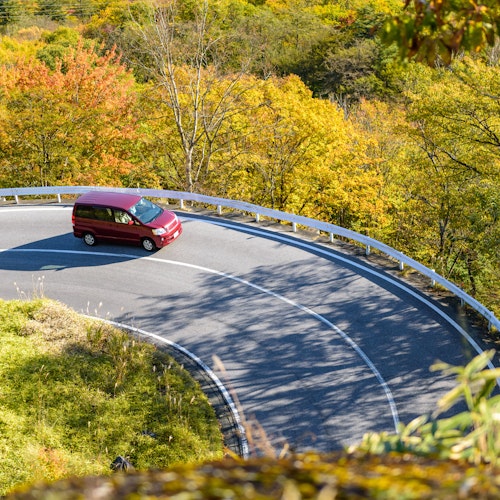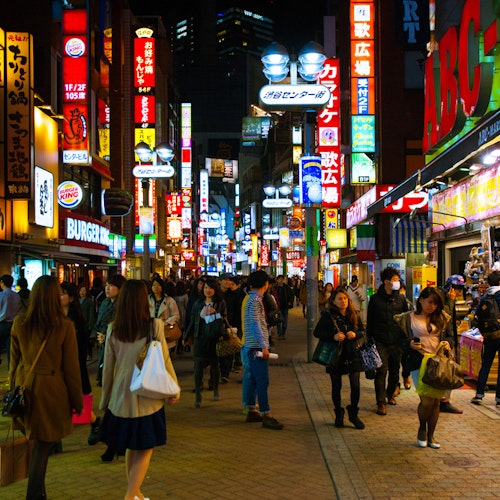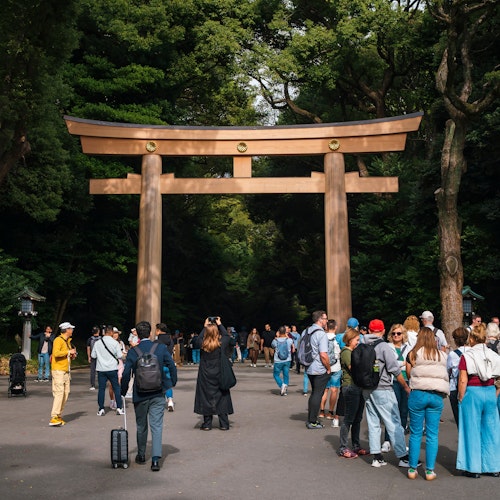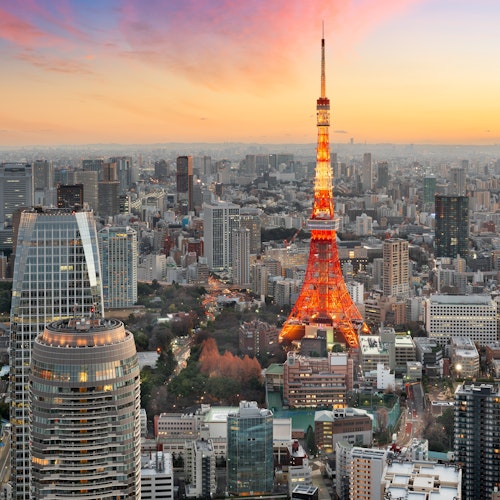
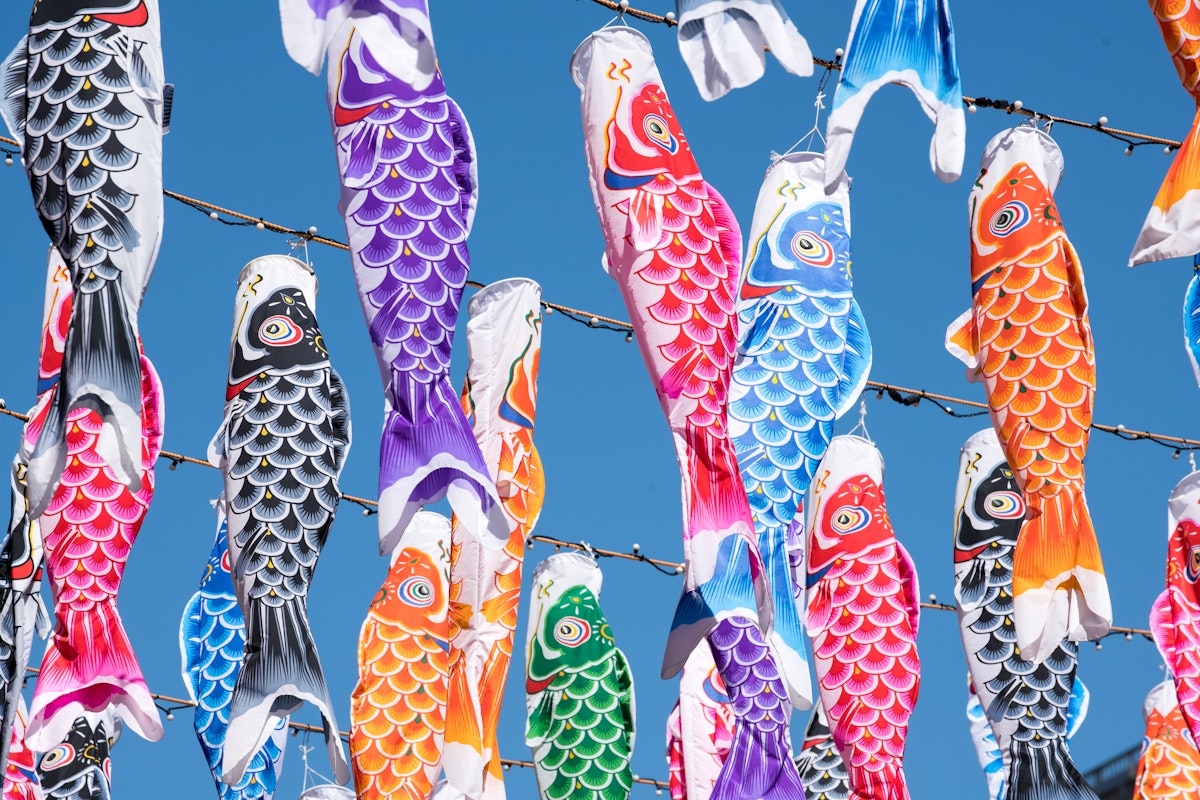
이 골든위크 일본에서는 일년 중 가장 축하받고 기대되는 휴가 기간 중 하나입니다. 4월 말부터 5월 초까지 이 주간은 문화적으로 중요한 4개의 국경일로 구성되어 있습니다.
현지인과 여행자 모두에게 골든 위크는 휴식, 사색, 축제 활동을 위한 시간입니다. 처음 방문하는 사람이든 일본 전통에 몰입할 계획이든 이 가이드는 전문가처럼 골든 위크를 탐색하는 데 도움이 될 것입니다.
골든위크는 일반적으로 4월 29일부터 5월 5일까지 일주일 이내에 4개의 공휴일이 연속으로 있는 일본에서 매우 기대되는 시기입니다. 이러한 조정에는 종종 주말이 포함되며, 특히 성실한 직장 문화로 유명한 국가에서 연장된 휴식을 취할 수 있는 드문 기회를 제공합니다.
이 기간 동안 많은 가족과 직원들이 연휴를 이용하여 국내 또는 해외 여행을 가거나, 사랑하는 사람들과 재회하거나, 휴식을 취합니다. 다른 사람들에게는 지역 축제에 참석하거나, 신사를 방문하거나, 꽃이 만발한 봄 풍경을 즐기는 것과 같은 일본의 풍부한 전통을 받아들일 수 있는 기회입니다.
용어 "골든위크"는 전후 일본 영화 산업에 의해 처음 만들어졌는데, 이 기간 동안 영화관은 전례 없는 티켓 판매를 경험했습니다. 극장은 가족과 개인이 휴식을 취하고 휴가 시간을 즐기기 위해 영화를 보러 몰려들면서 인기 있는 탈출구가 되었습니다.
놀라운 수익으로 인해 참석자 수와 수익성 측면에서 "황금"으로 묘사되었습니다. 시간이 지남에 따라 이 문구는 영화의 뿌리를 넘어 국가가 긴장을 풀고, 전통을 축하하고, 사랑하는 사람들과 다시 연결할 수 있는 귀중한 기회를 상징하게 되었습니다.
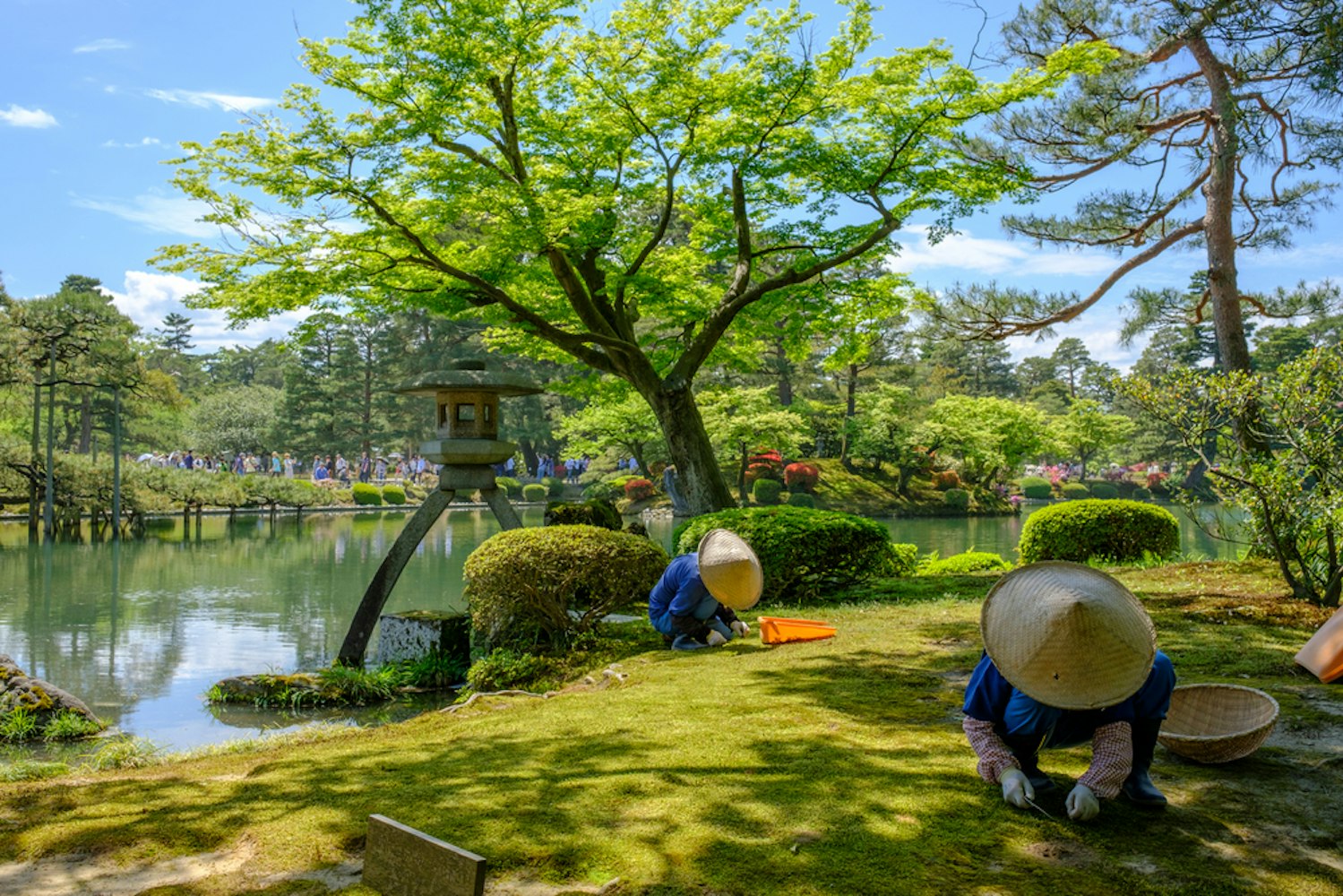
쇼와의 날, 또는 Shōwa no Hi는 4월 29일이며 일본의 역사에서 변혁기를 이끈 Shōwa 천황의 생일을 기념합니다. 이 날은 쇼와 시대의 도전과 성공에 대한 성찰을 장려하며, 여기에는 전쟁으로 황폐해진 일본의 회복과 세계 경제 강국으로의 부상이 포함됩니다.
많은 가족들이 이 기회를 통해 공원, 정원, 자연 명소를 방문하여 쇼와 천황의 환경에 대한 깊은 감사에 경의를 표합니다. 피크닉과 꽃놀이 이벤트와 같은 야외 활동이 인기가 있으며, 이는 자연과 일본의 문화 유산 간의 연결을 상징합니다.
헌법기념일(5월 3일)은 제2차 세계대전 이후 민주주의와 평화에 대한 일본의 헌신을 상징하는 1947년 일본의 전후 헌법이 제정된 것을 기념하는 날입니다. 이 공휴일은 시민들이 헌법상의 권리, 자유, 현대 일본을 형성한 통치 원칙의 중요성을 숙고하는 시간입니다.
미국 전역의 도서관, 박물관, 문화 센터에서는 헌법의 역사와 중요성에 대해 교육하기 위해 토론, 전시회 및 행사를 조직합니다. 많은 사람들이 또한 이 날을 사용하여 화합, 진보, 정의와 평등의 지속적인 추구를 강조하는 평화로운 활동에 참여합니다.
미도리노 안녕, 또는 녹음의 날는 일상 생활에서 자연의 중요한 역할을 기념하기 위해 헌정된 일본의 휴일입니다. 자연에 대한 쇼와 천황의 열정에서 영감을 받은 녹지에 대한 감상에 뿌리를 둔 이 날은 사람들이 환경과 다시 연결되도록 격려합니다.
가족들은 공원, 식물원, 명승지를 자주 방문하여 일본의 울창한 풍경에 흠뻑 빠져듭니다. 인간과 자연의 조화에 대해 성찰하고 생명을 유지하는 데 있어 환경의 역할에 대한 더 깊은 존중을 키울 때입니다.
골든위크의 마지막 휴일인 코도모노히는 아이들의 건강, 행복, 밝은 미래를 기원하는 활기찬 축제입니다. 일본 전역의 가정에서는 집 밖에 다채로운 잉어 깃발(코이노보리)을 전시하고 있으며, 각 잉어는 힘, 인내, 그리고 아이들이 상류에서 잉어를 헤엄치는 것과 같은 도전을 극복하기를 바라는 희망을 상징합니다.
집 안에는 전통 사무라이 인형이나 미니어처 투구(카부토)가 전시되어 소년들의 용기와 명예를 고취시킵니다. 이 날은 유서 깊은 단고노세쿠(단고절)에 뿌리를 두고 있습니다.
처음에는 남자아이들을 위해 기념되었지만, 현대의 코도모노히는 모든 아이들을 포용하기 때문에 가족들이 함께 모여 그들의 안녕과 성공을 위해 기도하는 즐거운 행사입니다.
골든위크 는 일본에서 가장 붐비는 여행 시즌 중 하나로, 수백만 명의 주민들이 마땅히 누려야 할 휴가를 즐길 기회를 잡기 때문입니다. 국내 여행이 급증하면서 가족 및 단체 여행객이 교토와 오사카와 같은 상징적인 도시로 몰려들어 문화 명소를 탐험하고 계절 축제를 즐길 수 있습니다.
한편, 일본 알프스와 해안 지역과 같은 경치 좋은 시골 지역은 자연의 평온을 찾는 사람들에게 인기 있는 장소가 되었습니다. 분주한 활동은 신칸센, 고속도로 및 공항이 완전히 운영되는 교통 허브로 확장되어 원활한 여행을 위해 계획이 필수적입니다.
축제: 많은 마을에서 퍼레이드, 전통 음악, 음식 가판대 등이 있는 지역 축제를 개최합니다.
문화 활동: 가족들은 자녀의 건강과 성공을 기원하기 위해 신사를 방문하는 경우가 많습니다.
자연 나들이: 공원과 식물원은 특히 녹음의 날에 활기가 넘칩니다.
많은 직장인들에게 골든위크는 유급 휴가와 공식 공휴일을 결합할 수 있는 드문 기회로, 휴식이나 여행을 위한 긴 휴식을 만들 수 있습니다. 이 기간을 통해 직원들은 가족과 함께 양질의 시간을 보내거나 오랫동안 기다려온 여행을 떠날 수 있어 연중 가장 기대되는 시기 중 하나입니다.
그러나 이 연말연시의 이면은 급증하는 여행자와 쇼핑객을 수용하기 위해 증가된 업무량에 직면한 소매 및 서비스 근로자들이 느낄 수 있습니다. 그들에게 골든 위크는 종종 긴 시간과 높은 수요를 의미하므로 즐길 공간이 거의 없습니다. 휴일 자신.
일찍 예약하세요: 숙박과 교통이 빠르게 채워집니다. 사전에 예약을 단단히 하세요.
군중을 피하십시오: 잘 알려지지 않은 여행지를 방문하거나 이른 아침에 도심 지역을 탐험하세요.
융통성 있게 대처하세요: 운송 지연 또는 예기치 않은 폐쇄를 설명하기 위해 완충 기간을 통합합니다.
골든 위크 기간 동안 많은 인파가 압도적으로 느껴진다면 9월 말에 열리는 실버 위크는 일본을 여행하기에 좋은 대안이 될 수 있습니다. 이 짧은 휴가 기간은 사람들이 자연과 조상을 기리는 시기인 추분을 중심으로 합니다.
골든 위크와 달리 실버 위크는 덜 붐비기 때문에 사원, 공원 및 문화 명소를 고요하게 방문하기에 이상적입니다. 또한 일본의 아름다운 단풍과 선선한 날씨를 즐길 수 있어 여행의 차분함을 느낄 수 있습니다.

골든위크는 단순한 휴가 그 이상입니다. 일본의 문화적 가치와 전통을 기념하는 의미있는 행사입니다. 이 기간 동안 4개의 국경일은 역사적 이정표를 기리는 것부터 소중히 여기는 것까지 국가 정체성의 독특한 측면을 반영합니다 자연의 아름다움.
가족들은 함께 모여 자녀의 미래 성공을 위해 기도하고, 공동 활동을 통해 유대감을 형성하고, 여러 세대에 걸쳐 전해 내려온 관습에 참여합니다. 바람에 나부끼는 생동감 넘치는 잉어 깃발을 감상하거나 전후 헌법의 중요성에 대해 숙고하는 골든 위크는 모든 사람을 일본의 역사, 가치 및 삶의 단순한 기쁨으로 다시 초대합니다.
일본의 골든 위크는 국경일, 문화 축제 및 개인 성찰이 혼합된 놀라운 시간입니다. 쇼와 천황의 유산을 감상하는 것부터 어린이날을 축하하는 것까지, 이번 주에는 일본의 풍부한 전통을 엿볼 수 있습니다.
이 기간에 일본을 방문할 계획이라면 연말연시 분위기를 만끽하고, 축제에 참여하고, 평생 기억에 남을 추억을 만들어 보세요. 즐거운 골든위크 되세요!
골든위크 기간 동안 사업체와 관광 명소가 영업합니까?
예, 대부분의 비즈니스, 상점, 레스토랑 및 관광 명소는 골든 위크 동안 계속 열려 있습니다. 그러나 국내 여행자의 수가 많기 때문에 이러한 장소는 매우 혼잡할 수 있습니다. 일부 시설에서는 이 기간 동안 일정을 조정할 수 있으므로 사전에 특정 영업 시간을 확인하는 것이 좋습니다.
골든위크 기간 동안 여행하는 것이 더 비쌉니까?
예, 골든 위크 기간 동안 여행하는 것은 더 비쌀 수 있습니다. 수요 증가로 인해 숙박 시설, 교통 및 인기 있는 명소의 입장료 가격이 크게 상승할 수 있습니다. 더 나은 요금을 확보하려면 미리 예약하는 것이 좋습니다.
골든위크 동안 붐비는 곳을 피할 수 있는 대체 여행지에는 어떤 것이 있나요?
인기 있는 관광지의 많은 인파를 피하려면 시골 지역, 작은 마을 또는 인적이 드문 명소와 같이 잘 알려지지 않은 목적지를 방문하는 것이 좋습니다. 이 지역을 탐험하면 바쁜 휴가 동안 보다 편안한 경험을 할 수 있습니다.
골든위크는 대중교통 시간표에 어떤 영향을 미치나요?
대중 교통은 골든 위크 기간 동안 휴일 일정에 따라 운영되며, 이는 일반 시간표와 다를 수 있습니다. 기차, 버스, 항공편은 예약이 꽉 찬 경우가 많고 역이 혼잡할 수 있습니다. 사전에 좌석을 예약하고 여행에 여유 시간을 확보하는 것이 중요합니다.
골든위크에 특별한 이벤트나 축제가 있나요?
골든 위크에는 일본 전역에서 전통 의식, 퍼레이드, 문화 공연 등 다양한 행사와 축제가 열립니다. 예를 들어, 도쿄의 메이지 신궁 봄 그랜드 페스티벌(Meiji Shrine Spring Grand Festival)은 전통 예술을 선보이며, 후쿠오카의 하카타 돈타쿠 축제(Hakata Dontaku Festival)는 활기찬 퍼레이드로 유명합니다. 이러한 행사에 참석하면 일본 문화와 전통에 대한 통찰력을 얻을 수 있습니다.
